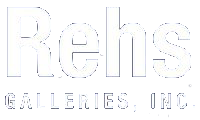In a victory for artists against tech companies, a federal court has allowed a lawsuit against a group of companies to continue, ruling that their art-generating artificial intelligence programs may violate artists’ rights.
The last I wrote about this particular case was in November 2023, when Judge William Orrick, a senior judge for the district court for the Northern District of California, allowed a group of artists to amend and refile their lawsuit against a handful of tech companies, including Midjourney, Stability AI, and Deviant Art. Of the artists named as plaintiffs in the suit, only Sarah Anderson has her copyrighted works registered with the US Copyright Office. Orrick dismissed all but Anderson’s claims, given this information. Since then, seven more artists have joined the suit. Last week, Orrick threw out the claims of unjust enrichment, breach of contract, and violations of the Digital Millennium Copyright Art. Yet, he allowed the claims of trademark and copyright infringement to continue.
The court also rejected the companies’ claims that the artists had to name specific artworks used to develop the AI programs. The defendant companies all trained their AI programs using data sets from LAION, comprising five billion images collected from internet sources. Orrick wrote, “Given the unique facts of this case — including the size of the LAION datasets and the nature of defendants’ products, including the added allegations disputing the transparency of the ‘open source’ software at the heart of Stable Diffusion — that level of detail is not required for plaintiffs to state their claims”. The artists demonstrated that these programs could generate a work replicating an artist’s style simply by entering their name as a prompt. Orrick, therefore, wrote in last week’s ruling that the allegations that the AI programs were “created to facilitate [copyright] infringement by design” were sufficient for the suit to continue. But Orrick did not address the main issue at the heart of the case, whether or not the companies’ use of existing art to train their AIs’ art generation capabilities constitutes copyright infringement. While this is not the end of this dispute, it is a significant step forward for the artists. Lawyers for the defendant companies claim that if the suit is successful, it would allow any artist to sue any company that used their programs. “The havoc that would be wreaked by allowing this to proceed against DeviantArt is hard to state”.
